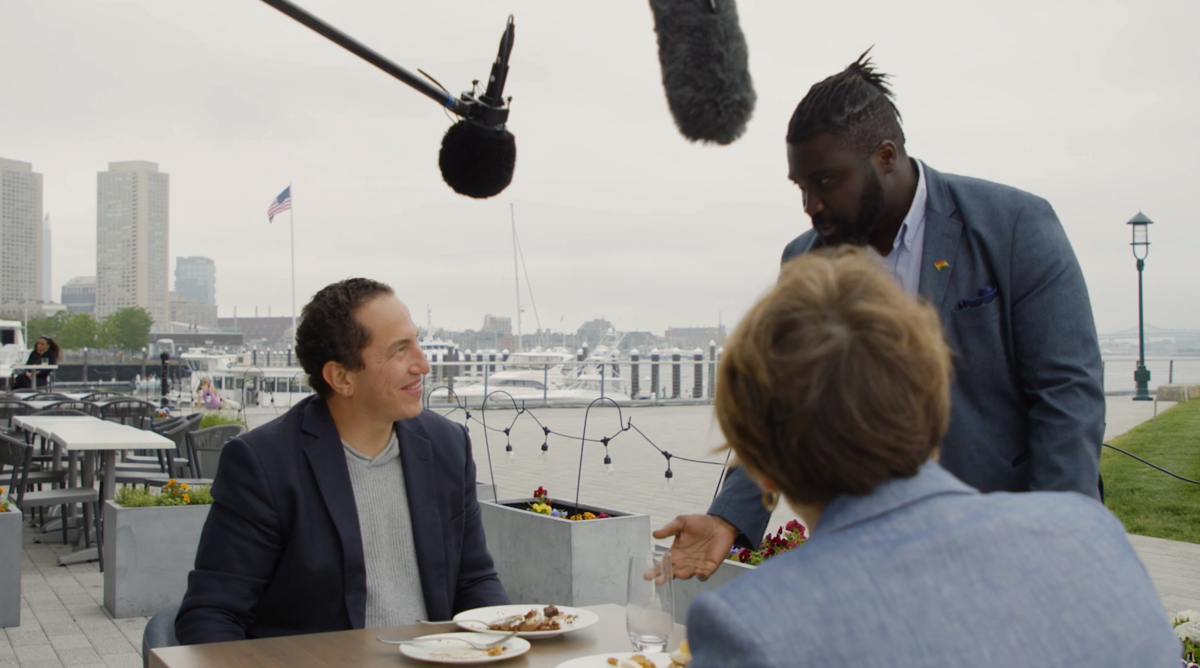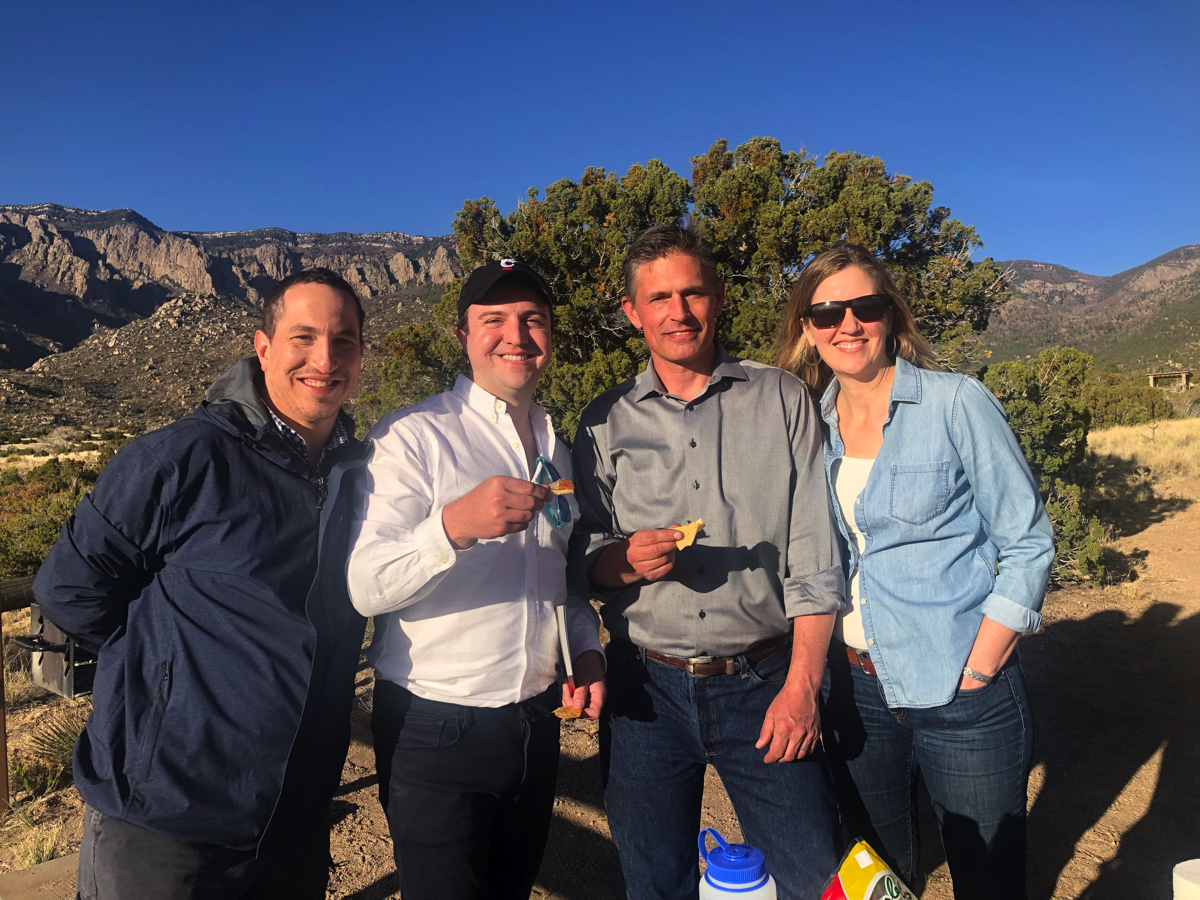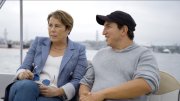In his new show on Bloomberg TV, Alexander Heffner ’12 uses the universal language of food to speak with governors and senators from across the country—and the political spectrum—about the divisive politics threatening the health of American democracy.
In Massachusetts, he shares oysters with Governor Maura Healey ’92 (D-Mass.) on Boston Harbor while they talk about the state’s acute housing crisis. In Alaska, he goes on a nature walk with Senator Lisa Murkowski (R-Alaska), and then discusses voting rights over salmon burgers. As Heffner, a journalist and host of the PBS show The Open Mind, treks his away across the country in season two of Breaking Bread with Alexander—premiering July 4—he treats viewers to casual and honest conversations with major politicians, between bites of local American fare, from Kansas chili to Georgia chicken and waffles.

In a presidential election year and amid a climate of fierce polarization and disagreement, Heffner’s show is meant to be a foundation for creating consensus—with food as an entry point to “disarm” his guests—before leaping into their major passion projects, such as comprehensive immigration or social security reform. Heffner describes it as “Anthony Bourdain meets Meet the Press.”
In season one, the show tackled a range of conceptual and policy issues. “In several episodes, we highlighted this idea of accountability—understanding government expenditures,” he said, exploring what it means to “democratize” more information about the government’s internal functioning and how elected officials reach major decisions that will affect their constituents’ lives.
Co-produced with his longtime friend, entrepreneur Maxwell Meyer ’12 (who also wrote the music), the show is a more colorful spinoff of Heffner’s PBS program, which covers “all realms of civic life.” Heffner’s grandfather founded that program in 1956, interviewing iconic American figures, including Martin Luther King Jr., until 2013, when Alexander assumed charge. That experience helped prepare him to “break bread” with the guests for his new series, while bringing him away from his “perch on The Open Mind,” Heffner said, a show “largely confined to a studio.”

In some ways, the co-producers’ friendship mirrors the spirit of the show. Heffner, from New York City, and Meyer, from rural South Dakota, met at boarding school before attending Harvard. They’ve been friends ever since, keeping up active political conversations where they’ve found a way to grow by bridging their very different backgrounds (and sometimes beliefs) into a sincere exchange they say is rarer now in the United States. “America is polarized,” Meyer said, “and we seem to be in this perpetual gridlock.”
Like many people, they both wanted to find hope for a national way forward. They decided to use food, Meyer continued, as a way to “focus on what unites us and try to find some common ground. It’s hard to be angry when you’re eating a cheeseburger, right?”
The show’s exchanges might also help Americans engage each other with more intellectual honesty, the co-producers said. By removing senators and governors from the tense, politics-choked environment of the capitals, they can better acknowledge the complexity of major issues such as immigration, and the shortcomings of—or at least objections to—their own solutions to vexing problems.
In the new season, Heffner travels from Boston to Savannah, Tucson, Baltimore, and beyond, speaking with national figures including Senator Raphael Warnock (D-Ga.) and Senator Jerry Moran (R-Kans.). In Massachusetts, he finds a fellow Harvard College graduate in Governor Healey, and even ropes in College friend Carl Malm ’12 for a cameo.
Within the national discourse, the co-producers hope Breaking Bread might help “restore the national morale,” Heffner said. Following a month of divisive Supreme Court rulings, ahead of a contentious presidential rematch, the show airs at a fitting moment in the nation’s political life.








